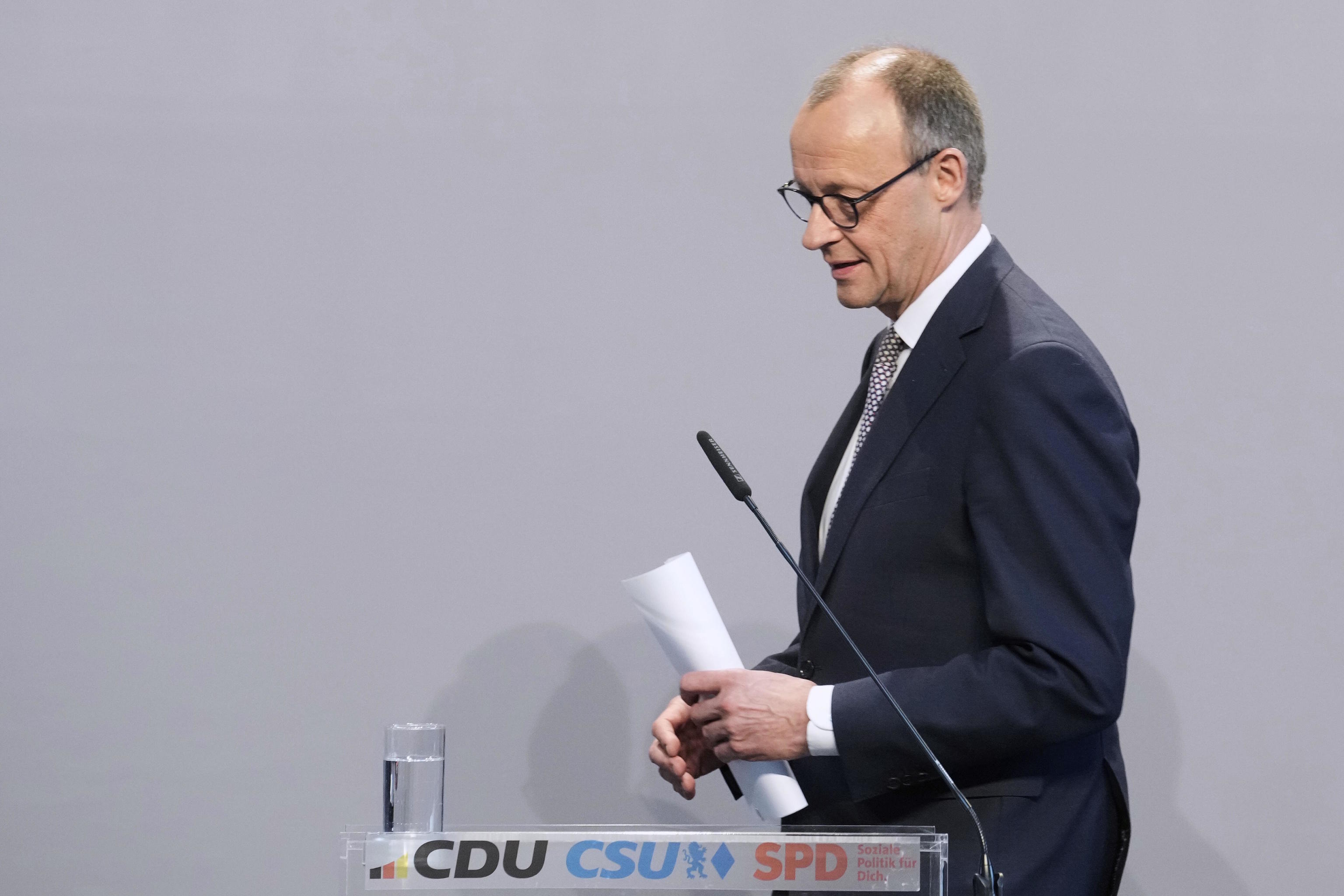The German conservatives led by Friedrich Merz have reached a coalition agreement with the center-left German Social Democrats (SPD), aiming to boost the growth of Germany, the largest economy in Europe, just as the global trade war threatens a recession.
"Germany is establishing a strong and capable government", said the future chancellor at the beginning of the press conference where he presented the pact, also stating that "Europe can rely on Germany", as reported by Reuters.
As a key issue for his government, he has vowed to toughen migration policy in Germany, as reported by Afp. "There will be a new chapter. We will take a new direction in migration policy," assured the conservative, specifying his intentions to end illegal immigration, suspend family reunification, and cease naturalizations after only three years in Germany.
The future chancellor also addressed the market crisis triggered by the trade war of the U.S. President: "Trump has unleashed new turbulence in the financial markets, and we do not know where they will lead us." Regarding Defense, he announced the creation of a voluntary military service similar to the Swedish model.
The agreement concludes weeks of negotiations between the chancellor-elect, Merz, and the SPD after the February elections, but it still falls far short of a majority, as the far-right Alternative for Germany is now the second-largest party in the Bundestag.
It still needs to be approved by a vote of the 357,000 SPD members, a process expected to take at least 10 days, as reported by the BBC. Therefore, it is unlikely that the CDU leader, Friedrich Merz, will be formally confirmed as the next German chancellor before May.
The pressure to reach an agreement has taken on new urgency in recent days, as the government prepares to take office at a time of global turmoil and amidst the escalating trade conflict caused by the widespread tariffs announced by U.S. President Donald Trump.
Merz, who has described the United States as an unreliable ally, has already committed to increasing defense spending and supporting companies struggling with high costs and weak demand.
Merz has also pledged to take a tougher stance on migration, moving Germany away from a more liberal immigration policy. If the SPD membership endorses the agreement, the Chancellorship will return to the conservatives after the three-year interlude of Olaf Scholz from the SPD.
